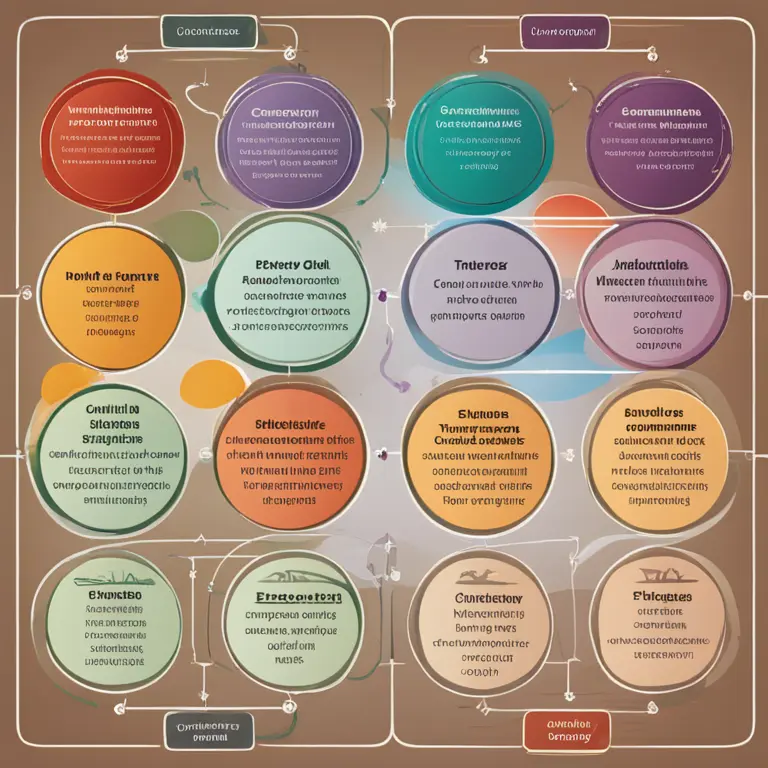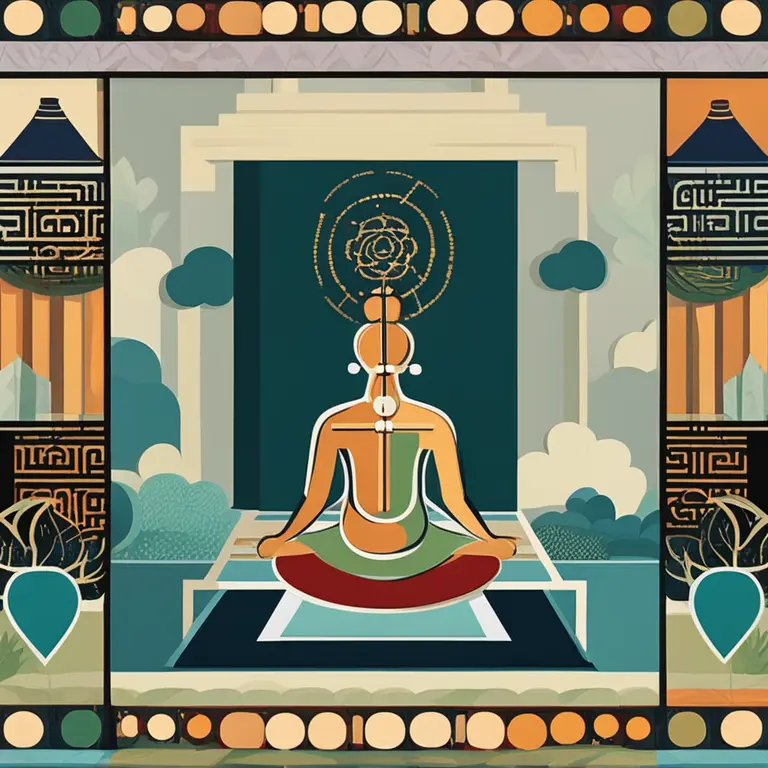
Meditation vs. Mindfulness: Clarity in Practice
Delve into the nuances of meditation and mindfulness to understand their unique qualities, benefits, and applications for enhancing mental well-being.
article by Hina Kurosawa
Meditation and Mindfulness Defined
While meditation and mindfulness are often used interchangeably, each holds its distinct nature. Meditation is an ancient practice that encompasses various techniques designed to promote relaxation, build internal energy, and develop compassion, love, patience, generosity, and forgiveness. On the other hand, Mindfulness is a mental state achieved by focusing one's awareness on the present moment, while calmly acknowledging and accepting one's feelings, thoughts, and bodily sensations. It's a therapeutic technique, a subset of meditation that can be applied to daily life. Both practices aim to reduce stress and increase one's psychological well-being, yet their approaches offer different paths to personal serenity.

Origins and History
Meditation, with its roots in religious and spiritual traditions, has been practiced for millennia, especially within Buddhism, Hinduism, and Taoism. Various forms like Transcendental Meditation, Zen, and Vipassana have guided practitioners toward self-realization and enlightenment. Mindfulness, although also rooted in Buddhist philosophy, has been refined in modern times for therapeutic applications. Jon Kabat-Zinn, a molecular biologist, was instrumental in secularizing mindfulness and relating it to stress reduction in the late 20th century with his Mindfulness-Based Stress Reduction (MBSR) program, which has been influential into the 2020s and beyond.

The Process: How They Differ
The process of meditation often involves sitting still and quietening the mind for a set duration, which could range from a few minutes to several hours. Techniques may include focusing on a mantra, an object, or one's breath. Mindfulness, by contrast, does not necessitate a specific time or place and can be incorporated into everyday activities such as eating, walking, or even during conversation. It’s about maintaining a moment-by-moment awareness, a sustained attentive engagement with whatever is happening in the now, without judgment. Both practices cultivate a heightened state of awareness and concentrated focus.

The Benefits of Both Practices
Both meditation and mindfulness have been shown to have profound health benefits. Studies have linked regular meditation with improvements in stress, anxiety, depression, and pain management. Similarly, mindfulness practices have been associated with enhanced emotional regulation, improved cognitive function, and greater relationship satisfaction. These benefits are especially pertinent in an age where digital distraction is pervasive and mental health awareness is at the forefront of societal concerns. Scientific understanding of these practices has considerably evolved by 2024, highlighting their potential in preventive mental health strategies.

Applications in Modern Society
Meditation has found its place not just in personal wellness routines but also in corporate wellness programs, educational settings, and even in some branches of the military. Mindfulness, due to its accessibility and integration into MBSR and other cognitive therapies like Mindfulness-Based Cognitive Therapy (MBCT), has been widely accepted within clinical psychology and psychiatry. As stress-related disorders have become increasingly prevalent, these practices are more relevant than ever, providing tools that can be used without any religious or spiritual affiliation, which aligns well with the secular mindset of the 2020s.
Choosing the Right Practice
The choice between meditation and mindfulness is personal and often based on individual goals and preferences. Meditation can serve those seeking a deep spiritual journey or profound mental detoxification. Mindfulness, more flexible in its application, can be an excellent starting point for those looking to better manage their daily stress and cultivate a greater appreciation for their lives as they unfold. Understanding their differences is essential in determining the most effective approach for personal growth and achieving a balanced mental state.
Published: 1/18/2024
Modified: 1/18/2024
More predictions
Come back here soon to learn more about yourself and your future


Mindful Meditation Techniques Explored
Discover effective meditation mindfulness methods to enhance your wellbeing and spiritual journey.


Mindfulness & Meditation: A Path to Inner Calm
Delve into our Mindfulness Meditation Program designed to guide you on a serene journey towards inner peace and clarity.


Unlock Beginner's Guide to Mindful Meditation
Embark on the journey of mindfulness through meditation with this beginner-friendly guide to creating a peaceful and aware mindset.